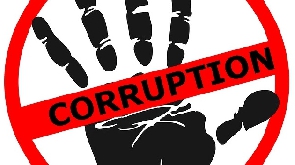Corruption is a serious issue that affects many developing countries, including Ghana. It involves the abuse of power for personal gain, and it undermines economic growth, reduces public trust in government and businesses, and contributes to poverty.
Corruption in government and businesses takes many forms, including bribery, embezzlement, and nepotism. Despite efforts to reduce corruption, it continues to be a major challenge in many countries, including Ghana.
The purpose of this article is to provide recommendations on how to address corruption in government and businesses in Ghana. It will start by examining the causes of corruption and its impact on poverty reduction and economic growth.
The article will then present various strategies that can be used to reduce corruption, such as strengthening institutions and systems of accountability, increasing transparency, improving governance, and promoting a culture of integrity and ethical behavior.
Corruption in government and businesses is caused by a number of factors, including lack of transparency and accountability, weak rule of law, and poor governance. These factors can create an environment in which corruption can flourish. For example, when systems of accountability are weak, there is less pressure on those in power to act ethically, and it is easier for them to abuse their power for personal gain.
Another factor that contributes to corruption is the culture of impunity that exists in many countries. When those who engage in corruption are not held accountable for their actions, it sends a message that corruption is acceptable. This perpetuates a cycle of corruption and undermines efforts to reduce it.
There are several strategies that can be used to reduce corruption in government and businesses, including:
Strengthening institutions and systems of accountability: Independent oversight bodies, anti-corruption agencies, and judicial systems can help to reduce corruption by holding those in power accountable for their actions. When there are strong systems in place to detect and prosecute corruption, it creates a disincentive for individuals to engage in corrupt behavior.
Increasing transparency: Increasing transparency in government and business operations can help to reduce corruption by making it more difficult for individuals to abuse their power. For example, open data initiatives and information-sharing mechanisms can provide the public with greater access to information about government and business operations, making it easier to detect corruption.
Improving governance: Reducing the power of patronage networks and increasing civic engagement can help to improve governance and reduce corruption. This can be achieved through promoting citizen participation and giving individuals a greater voice in decision-making processes.
Promoting a culture of integrity and ethical behavior: Education and awareness campaigns can help to promote a culture of integrity and ethical behavior and encourage individuals to act ethically and report corruption when they see it. Providing whistleblower protection can also help to create a safe environment for individuals to report corruption.
In conclusion, corruption in government and businesses is a serious issue that undermines economic growth, reduces public trust, and contributes to poverty. There are several strategies that can be used to reduce corruption, such as strengthening institutions and systems of accountability, increasing transparency, improving governance, and promoting a culture of integrity and ethical behavior.
Reducing corruption requires sustained effort and commitment from all stakeholders, including government, civil society, and the private sector. By working together, it is possible to create a more transparent and accountable environment that supports economic growth and reduces poverty. However, this will require a long-term commitment and a concerted effort from all
Opinions of Sunday, 5 February 2023
Columnist: Dr. Wilson Otchie



















